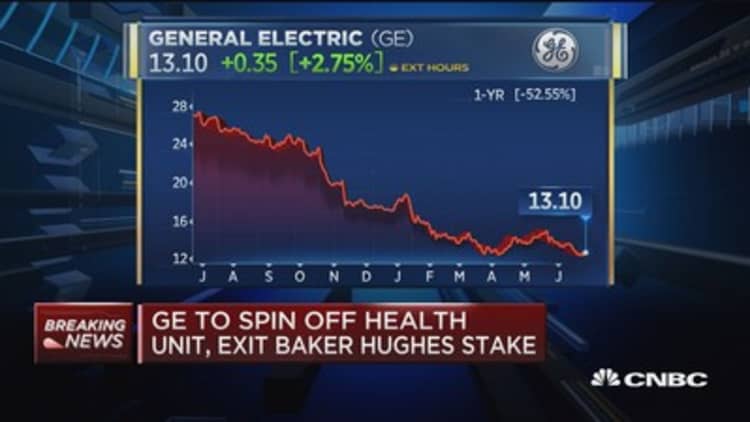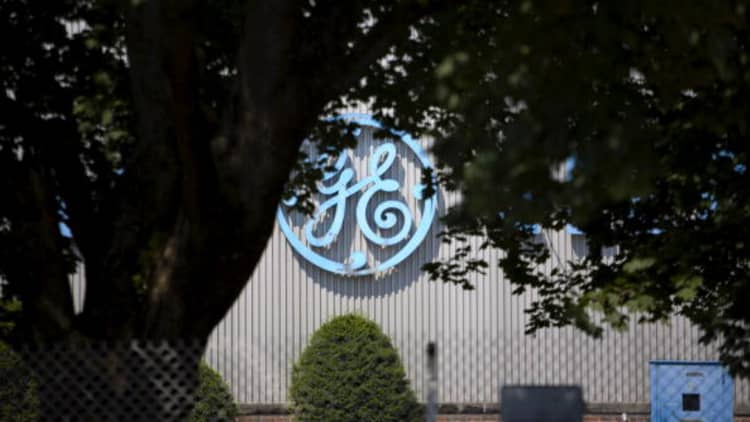
General Electric on Tuesday it will spin off its health-care business and divest its stake in oil-services company Baker Hughes, leaving the once-sprawling conglomerate focused on jet engines, power plants, and renewable energy.
The changes aim to reward battered shareholders and strengthen GE's balance sheet by reducing debt, building up cash and further shrinking GE Capital, GE said. Shareholders will receive 80 percent of the value of GE Healthcare as a tax-free distribution, GE said.
GE shares jumped 5.2 percent at $13.41 in premarket trading.
The company will spin off the profitable healthcare unit over the next 12 to 18 months, and sell its Baker Hughes stake over two to three years, it said.
The moves, which conclude a year-long strategic review, mirror moves that Wall Street analysts had called for a year ago.
The remaining businesses "share similar technologies and industrial markets, in contrast to limited synergies that exist with GE Healthcare," Fitch analyst Eric Ause said in a note.
The changes leave GE with some of its best- and worst-performing units. Aviation has been highly profitable, but the power business profit has tumbled as sales of plants and services have slowed, and renewable energy profit margins are in the single digits.
The spinoff of its healthcare unit follows a similar move by rival Siemens, which floated its medical business as a separate company, Siemens Healthineers, in March.
GE faces tough competition for medical imaging machines, which include MRI scanners and ultrasound devices, from such rivals as Philips and Siemens, as well as Asian upstarts.
On Monday GE said it agreed to sell its distributed power unit for $3.25 billion to U.S. buyout group Advent. GE also plans to shed its transportation unit, which makes railroad locomotives.
GE bought Baker Hughes in July 2017 and combined it with the GE oil and gas equipment and services operations to create a new company in which GE holds a stake of about 62.5 percent. The unit reported sales of $17.23 billion in 2017.
GE said it plans to reduce its industrial net debt by about $25 billion by 2020 and maintain more than $15 billion of cash on its balance sheet.
GE, which once towered over the American business landscape, is struggling to retain its standing as an industrial powerhouse.
The company has foundered in several key industrial markets in recent years, and a diversion into financial services steered it into the eye of the global financial crisis in 2008.
—GE Chairman and CEO John Flannery will be on "Squawk on the Street" at 10:30 a.m. ET Tuesday.


